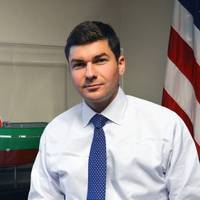Great Lakes Group in 2016 Hiring Push

Facing continued growth driven by client demand, the Great Lakes Towing Company and Great Lakes Shipyard have together added 20 new employees in Q1 2016 and are looking to hire an additional 50+ employees before the end of Q4 2016. “We’re looking out for the future,” said the company’s president, Joe Starck. “We’re strategically focusing our efforts on finding, developing and training a team of professionals for a growing workforce to successfully accomplish the contracts we have now, and the potential contracts we are working on.
This Day in Coast Guard History – July 27
1793- President ordered full complements for cutters and increased monthly pay to $40 for Captains, $26 for 1st mates, $20 for 2nd mates, and $18 for 3rd mates. Captains to have subsistence of Captain in Army, three mates subsistence of Army Lieutenants and mariner’s subsistence not to exceed $10 per month. 1868- Secretary of Treasury directed by Congress to enforce law prohibiting unauthorized killing of fur seals in Alaska. Also President authorized to regulate traffic in firearms, ammunition and spirituous liquors in Alaska. President assigned the Revenue Marine to police work necessary to enforce. 1957- A Captain of the Port patrol vessel discovered a fire of unknown origin at the Mystic Coal Yard in Boston, MA. The U.S.
SCI – Houston Adds Instructors to Training Staff
The Seamen’s Church Institute announces that Captain Henry E. Cummings and Captain Stephen Polk have joined the teaching staff at the Institute’s simulator training center located in the Port of Houston. Since May of 2001, the SCI – Houston Center staff has provided advanced training for deep-sea, inland, and coastal mariners. Captain Henry E. Prior to joining SCI in January of 2008, Captain Henry Cummings was Senior Port Captain and an Operations Officer at XL Marine in Paducah, KY. For two years, he was responsible for managing Navigation and Crewing concerns, supervising chemical tows on the Ohio River, and investigating all vessel incidents and reporting findings to management.
News: Thomas B. Crowley Sr., Scholarships Presented
Continuing its tradition of supporting academic excellence, Crowley Maritime Corp. recently presented Thomas B. Crowley Sr. Memorial Scholarships to two midshipmen from the U.S. Merchant Marine Academy at Kings Point, NY. Mark Miller, director of corporate communications for Crowley, presented scholarships to Jeffrey Jaskot and Audrey Meyers. Midshipman Jaskot, of Orlando, Fla., is a senior majoring in Logistics and Intermodal Transportation and plans to attain a U.S. Coast Guard Unlimited 3rd Mates License. He also is in the process of achieving a Tankerman PIC Rating as well as Crude Oil Wash and Inert Gas Endorsements. Upon graduation, Jaskot plans to use his license and go to sea. He interned at Crowley in the summer of 2003.
SUEZ LNG implements U.S. Citizen Crewing Agreement
SUEZ LNG, Massachusetts Maritime Academy (Academy), and the International Organization of Masters, Mates and Pilots (MM&P) announced an agreement to recruit, train, and supply U.S citizen mariners for service on the LNG tankers owned or chartered by SUEZ LNG. SUEZ LNG, in compliance with the deepwater port license agreement signed with Maritime Administrator, Sean T. Connaughton, will collaborate with both the Academy and the MM&P Union to train and employ U.S. citizen crew members on up to nine LNG vessels operating in the SUEZ fleet. As such, the MM&P Union will screen and provide resumes for mariners from 3rd Mate to Master and from 3rd Assistant Engineer to Chief Engineer.
USCG Regulations Lag Behind Offshore Activity
The loss of the world’s largest floating deepwater production platform, Petrobras’ P-36, last month off the coast of Brazil with the loss of 10 men will reverberate throughout the oil industry for years to come. We do not yet know what happened to the unit other than that there were reported to be three separate explosions after which the unit took on severe list of about 24 degrees and sank several days later. Was the unit unsafe? Was it operated improperly? We do not yet know the answers and may never know all the answers. Here in the U.S., the USCG continues to go forward with the regulatory project that would modify the rules on the US Outer Continental Shelf (OCS).





